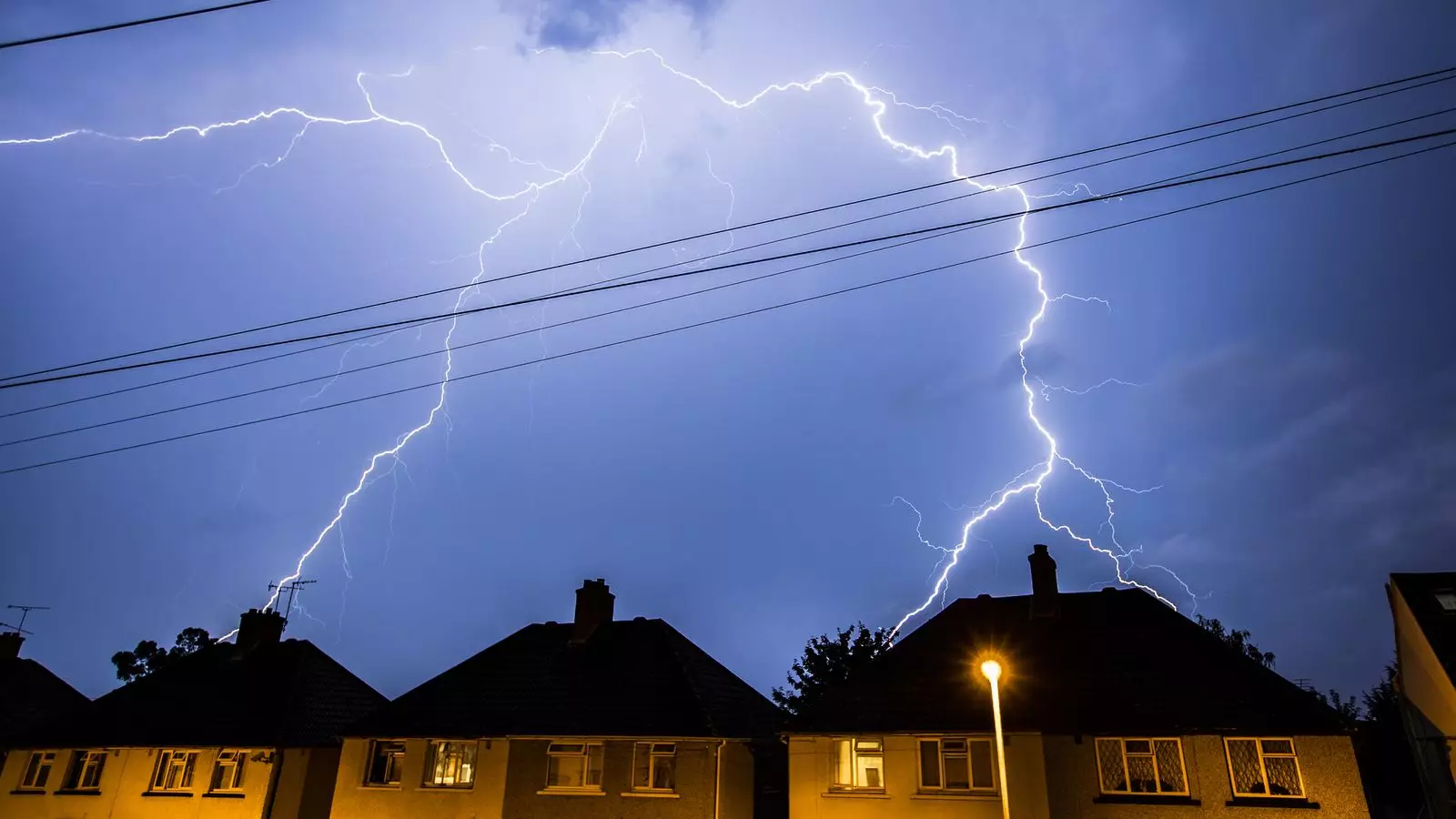Recent weather patterns serve as a stark reminder of the fragile balance between nature and human activity—a balance that, in many ways, has been severely disturbed by decades of environmental neglect. The severe thunderstorms and flooding warnings across southeastern England underscore a brutal reality: climate change is no longer a distant threat but an immediate, pressing crisis. It’s not merely about inconvenient rain showers but about a system pushed to its brink, revealing the inadequacies of our preparedness, infrastructure, and policy responses.
While forecasters warn of torrential rains capable of causing widespread disruptions, the broader concern lies in our collective failure to address the roots of climate instability. Deforestation, urban sprawl over floodplains, and the relentless pursuit of short-term economic gains have exacerbated vulnerabilities. Today’s chaos is a direct consequence of neglecting sustainable practices and ignoring the warnings from climate scientists for decades. It’s a painfully honest reflection that our resilience as a society is compromised, not by nature’s unpredictability alone but by our own shortsightedness.
Government and Infrastructure: Falling Short in Crisis Management
Despite the alarm bells rung by meteorological agencies, government responses remain reactive rather than proactive. The flooding risks, predicted to cut off communities and cause power outages, expose the stark shortcomings in urban planning and infrastructure resilience. In many regions, drainage systems are outdated, and flood defenses are insufficient to handle the magnitude of what’s forecasted. Instead of prioritizing investment in climate-resilient infrastructure, policymakers continue to underfund vital projects, leaving vulnerable populations exposed.
This systemic failure underscores a critical dilemma: society’s inability to adapt in time, and political inertia that hampers necessary reforms. It is not enough to issue warnings; concerted action is needed—investment in sustainable urban development, restoration of natural flood barriers like wetlands, and comprehensive emergency preparedness plans. The fact that communities remain at risk of being cut off due to flooding signals a profound neglect of civic responsibility. Our resilience is only as strong as the infrastructure that protects us—and that resilience is perennially underfunded.
The Societal Toll and the Need for a Paradigm Shift
As torrential rain batters the landscape, the human toll becomes painfully apparent. Homes and businesses face flooding—displacing families, destroying livelihoods, and adding to the growing mental health crisis linked to environmental disasters. The cancellations of train and bus services not only inconvenience daily commuters but threaten economic stability, highlighting how interconnected our society has become with reliable infrastructure.
Moreover, the ongoing droughts and water restrictions reveal a paradox—while parts of the country are submerged under flood warnings, others are suffering from a lack of water, with reservoirs critically low. This contradiction accentuates the urgent need for a paradigm shift: a move towards smarter, more sustainable resource management and a recognition that climate resilience must be integrated into policymaking at every level. Ignoring these signs only deepens societal divisions and amplifies the suffering of marginalized communities least equipped to cope with these disasters.
Lessons in Accountability and the Future Forward
The confluence of extreme weather events and infrastructural neglect calls for a critical reassessment of priorities. The fact that floods are predicted to become more severe and frequent suggests that incremental measures are no longer sufficient. Instead, society must challenge itself to demand comprehensive, science-based approaches that prioritize long-term resilience over short-term gains.
There’s also a moral imperative: accountability from political leaders, corporations, and individuals alike. We must question our commitments to sustainable development and unwaveringly advocate for policies that address climate change head-on. The current situation should serve as a stark warning that unchecked environmental degradation will only accelerate the damage, forcing communities to bear the brunt of climate neglect. It’s time for a shift—one that recognizes the climate crisis not as a fleeting inconvenience but as an existential threat demanding our full attention and action.


Leave a Reply